Rockstar made millions selling Scotland's natural export: dark comedy
A look back through GTA's history, from virtual living city to a lifetime of public notoriety.
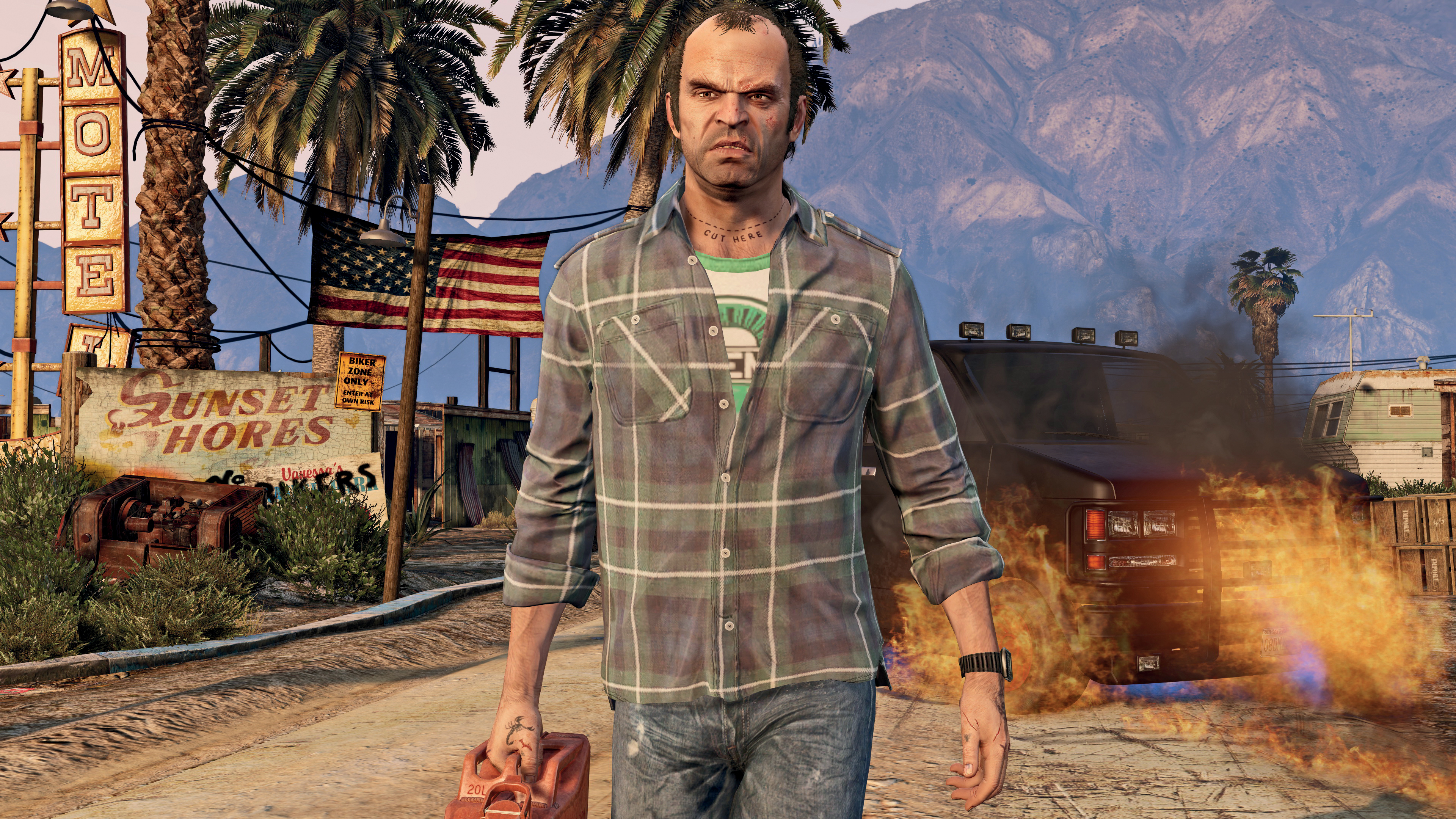
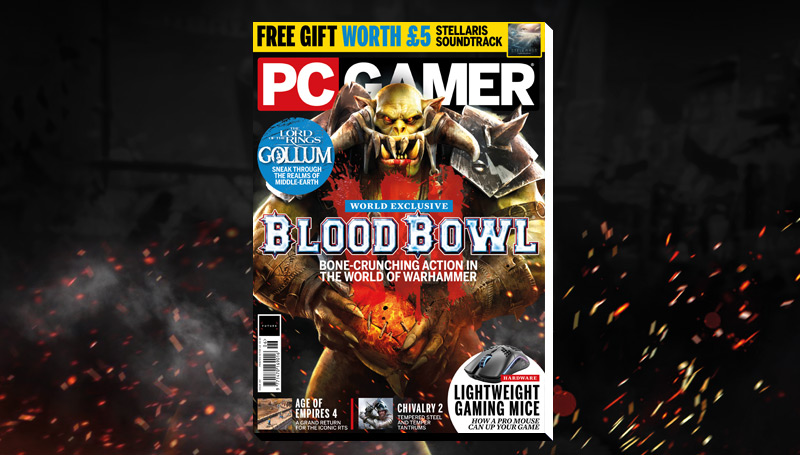
This article first appeared in PC Gamer magazine issue 356 in May 2021, as part of our 'DNA Tracing' series, where every month we delve into the lineages behind iconic games and studios.
The Houser brothers were born heirs to the world of gangster cinema. Their mother, Geraldine Moffat, was the glamorous actress who rescued Michael Caine in a convertible in Get Carter. "You didn't know you had a fairy godmother, did you?" she yelled over the wind and engine noise, before speeding Caine off to a multi-story car park to be assigned his next mission: the killing of a crime boss.
Sam Houser, the eldest brother, grew up on a diet of films like The Getaway and The French Connection, '70s car chase movies that were cool, brutal, and lacking the clear moral centre of the Hollywood thrillers that had come before. When he was five or six, Sam's wealthy solicitor father took him to a London jazz club to meet Dizzy Gillespie. "What are you going to do when you grow up, son?" the legendary trumpeter asked. "Are you going to be a bank robber?" Sam would do better than that, enabling millions of bank robberies the world over.
Grand Theft Auto didn't start in London, though. It was born further north, in the Dundee offices of DMA Design. Though titles like Menace and Blood Money might have suggested vicious Steve McQueen flicks, they were in fact sidescrolling space shooters, part of the '80s post-arcade culture that made the fortunes of early game development moguls like DMA founder Dave Jones.
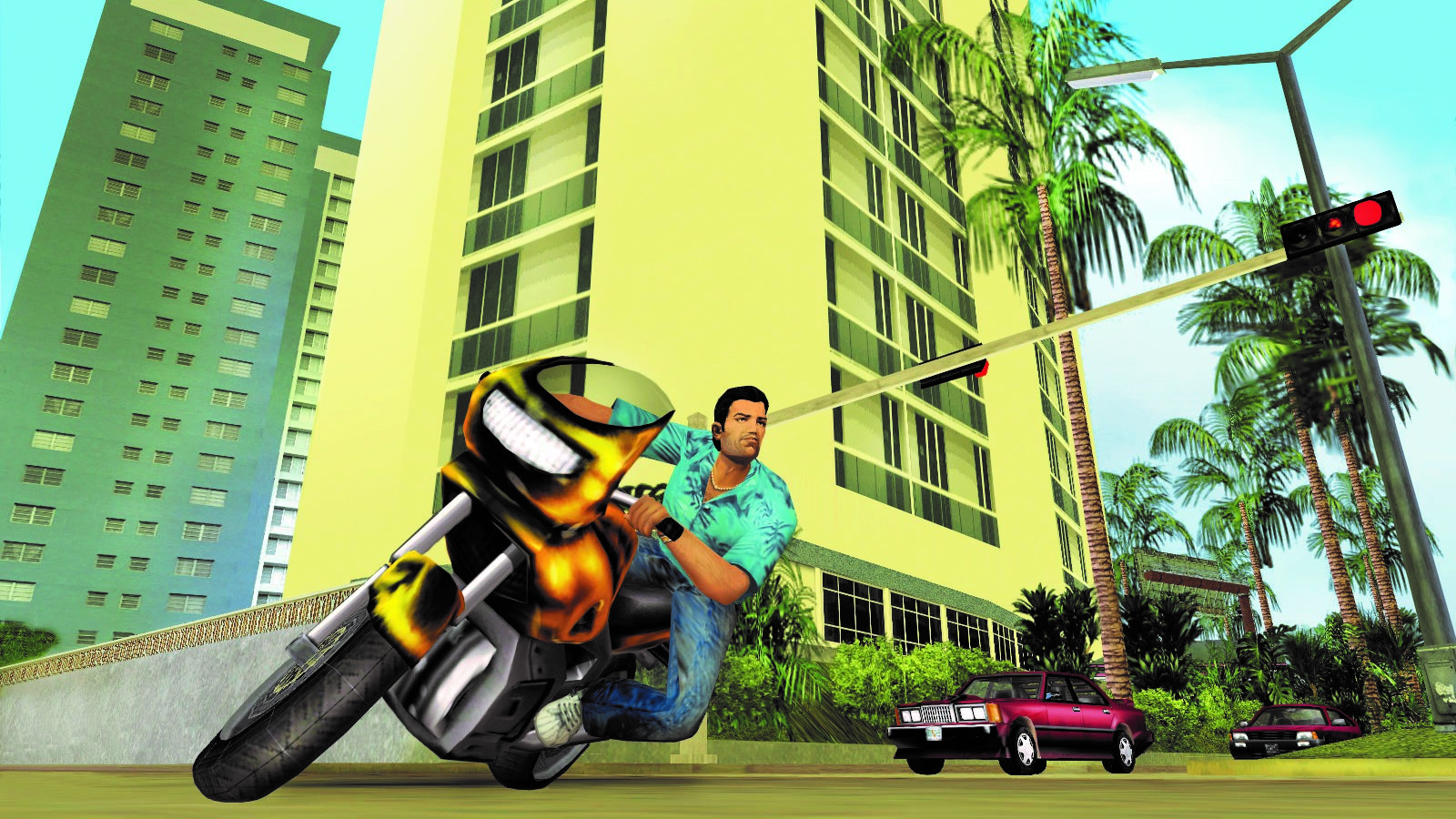
However, the studio's first international success wasn't GTA but Lemmings, the darkly comic yet family-friendly puzzle-platformer. Lemmings was the Assassin's Creed of its day, spawning sequels and spin-offs through the '90s (Oh No! More Lemmings, All New World of Lemmings, Lemmings Paintball, Holiday Lemmings 1994). It funded multiple teams, a motion-capture studio, and even a team of in-house musicians—sufficient sprawl that GTA could be developed by a team that, for the most part, had never shipped a game before.
Jones, having built his terrarium for digital lemmings to mill about in, wanted to upgrade to a virtual living city—a dynamic crosshatch of streets where pedestrians strolled and cars honked. As with many such simulation concepts, the problem was coming up with a purpose for the player within it: the GTA team initially strove for the moral centre missing from The French Connection, casting players as a cop who stopped at traffic lights and was punished for running down civilians.
The project only found its direction when the team implemented a carjacking animation, for which the player was awarded 100 points. Suddenly, GTA became transgressive
But according to David Kushner's GTA biography Jacked, some internally dismissed the game as 'Sims Driving Instructor', a simulation dedicated to recreating a boring reality. The project only found its direction when the team implemented a carjacking animation, for which the player was awarded 100 points. Suddenly, GTA became transgressive. The role reversal made immediate sense to Sam Houser, by then a producer at DMA's publisher—as a child, he'd played the quintessential PC simulation Elite as a "space mugger".
GTA was a hit, and the first crack in a philosophical schism. Jones, a celebrated businessman in Scotland, grew uncomfortable when the nascent Rockstar recruited the notorious publicist Max Clifford—later found guilty of eight counts of indecent assault against four girls and women aged between 15 and 19—to promote the game. Clifford whispered in the ears of UK politicians, and GTA was condemned in the House of Lords before it was even released.
The biggest gaming news, reviews and hardware deals
Keep up to date with the most important stories and the best deals, as picked by the PC Gamer team.
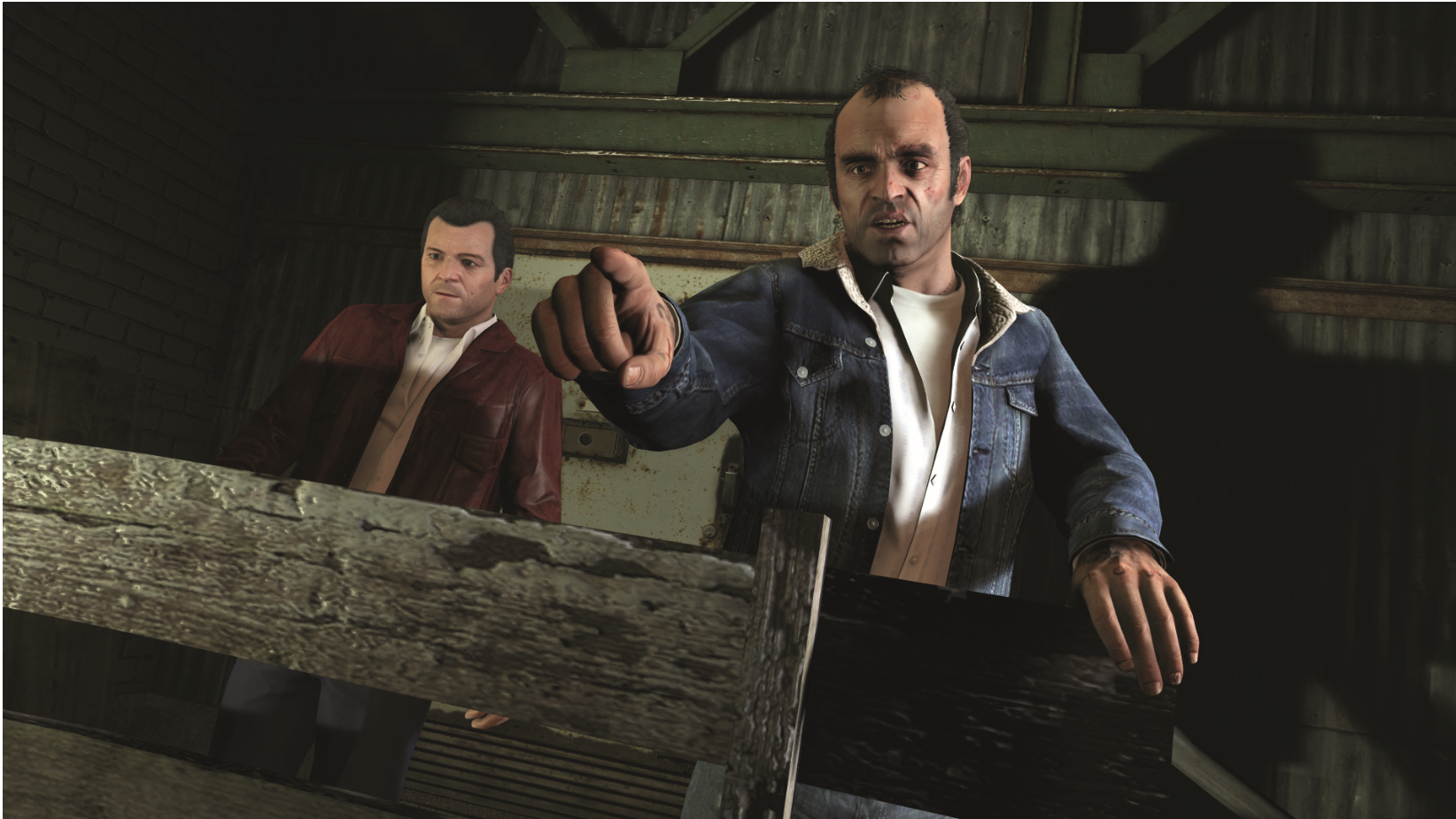
NY state of mind
From then on, Rockstar North's leadership came undisputedly from the New York loft office where the Houser brothers had set up their publishing label. With Sam's younger brother Dan established as a co-writer on GTA, this transatlantic setup would define the tone of the series. The Housers had long loved the excess of America, and now they had a front-row seat. They couldn't relate to GTA's cash-strapped criminals—at St Paul's public school in London, Sam was a classmate of future UK chancellor George Osborne. But the brothers' status as expats made them the perfect satirists, close enough to observe but with a distant perspective that allowed them to identify the country's absurdities with ease.
That view was reflected by the team in Edinburgh. "It's like living on the moon," Dan Houser once said of Los Angeles in an interview for The Guardian. "Some of the guys from Scotland adore it, some of them can't stand it." That tension has been evident in every one of the 3D worlds Rockstar North has made for GTA: superficially beautiful, tremendous fun, and morally bankrupt. The studio has celebrated the country's pop culture through its radio stations, while skewering its media and corporations—who in GTA tend to say the quiet part loud ("Weazel News: confirming your prejudices").
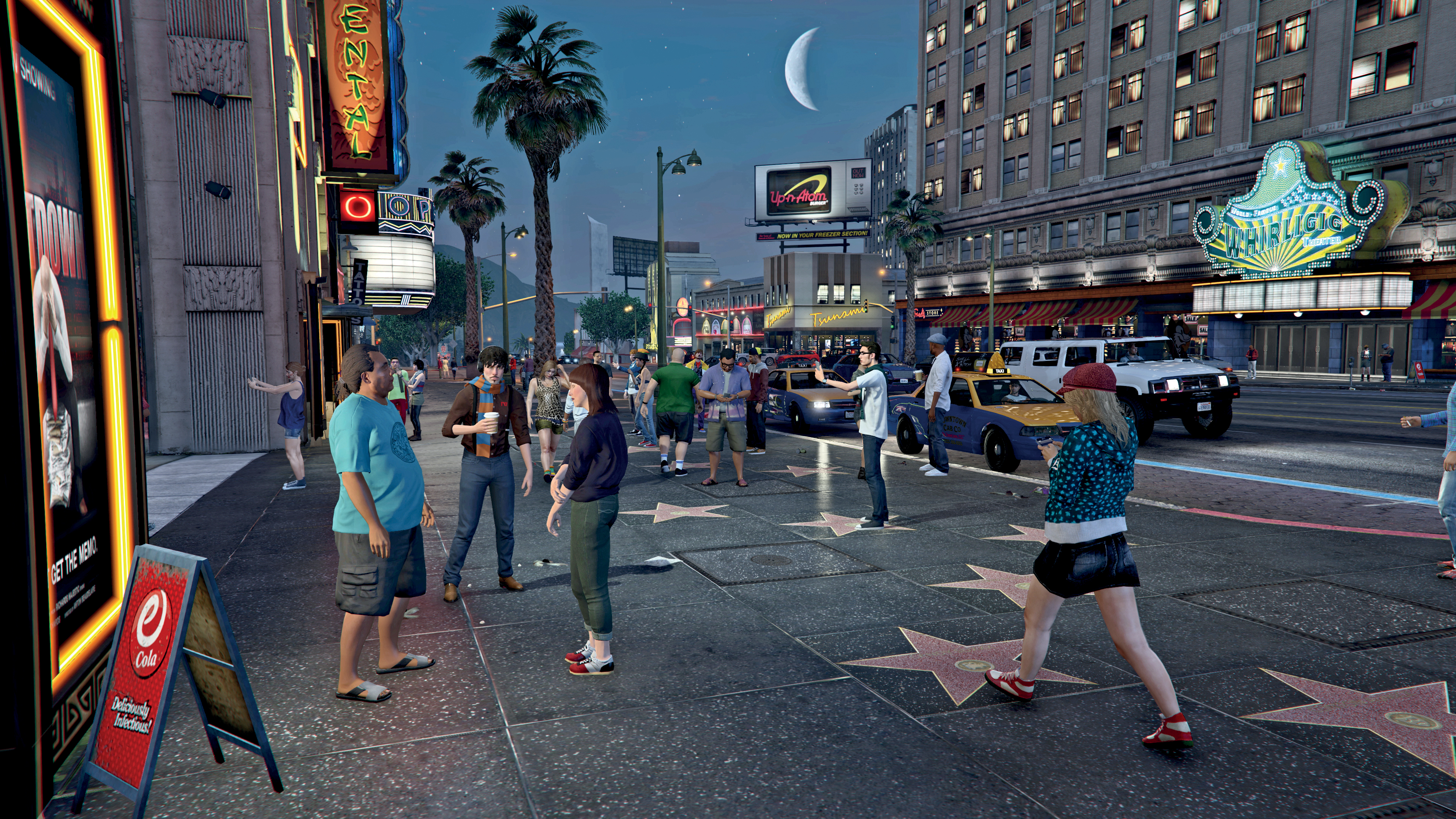
Public enemy
Rockstar North has mostly been able to have it both ways, holding up a mirror to US society, while letting players live out a warped fantasy within it. But its most extreme game, Manhunt, almost caused a mutiny within Rockstar, as it was deemed indefensible for its plastic bag asphyxiations and genital mutilations, all carried out by the player. The high scores awarded for these killings might have been a logical extension of GTA's points-for-carjackings, and its white supremacist victims further proof of the studio's fascination with the ugliest sides of America. But it proved to be too unflinching a reflection, and too obvious a form of bait for the decency brigade Clifford had first hooked.
The same was true for Trevor, the psychopath protagonist of GTA V. Murderous, unpredictable and unhygienic, he was the behaviour of GTA players made flesh—and not all players liked what they saw. But there too in GTA V was DMA's heritage, in the rounds of golf and the cable car that took you up to Mount Chiliad: a simulation of life in all its mundanity. Perhaps there's a little of Dave Jones left in Rockstar North after all.
Jeremy Peel is an award-nominated freelance journalist who has been writing and editing for PC Gamer over the past several years. His greatest success during that period was a pandemic article called "Every type of Fall Guy, classified", which kept the lights on at PCG for at least a week. He’s rested on his laurels ever since, indulging his love for ultra-deep, story-driven simulations by submitting monthly interviews with the designers behind Fallout, Dishonored and Deus Ex. He's also written columns on the likes of Jalopy, the ramshackle car game. You can find him on Patreon as The Peel Perspective.

